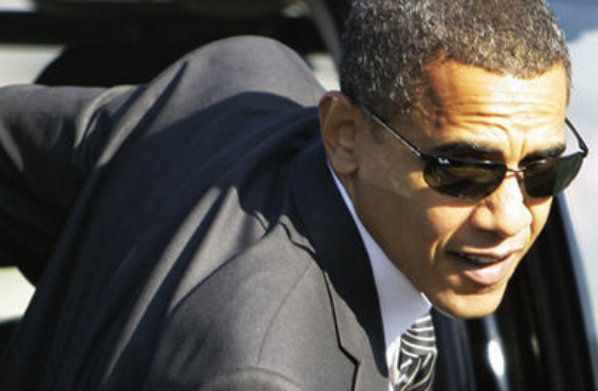Here is something we’ve all heard hundreds of times:
If you're not liberal when you're young, you have no heart. If you're not conservative when you're older, you have no brain.
Daniel Henninger suggests in a must-read column in today’s Wall Street Journal that this is no longer true. The Obama administration “has knocked four years of earning power off a lot of people’s lives,” Henninger writes, and a lot of them are young people. A Wall Street Journal-NBC poll has the percentage of pro-Obama voters aged 18-34 swooping below 50 percent, though other polls have them holding firm for President Obama.
Henninger writes:
Whatever change the youth vote had hoped for [in 2008 when it went overwhelmingly for President Obama], the most compelling delta in their world since is the rate of nonemployment for those aged 18 to 24, which has risen to nearly 16%. A study compiled recently by the Associated Press, based on academic surveys, said the combined rate of youth unemployment and underemployment was an astounding 50%.
Which brings us to a buzz thought more powerful than the alleged correlation between age and ideology. For better or worse, anything established in our time is vulnerable to being overturned by a technology or idea that is then called "disruptive." Barack Obama is president today because he harnessed the power of disruption.
That disruption was the power of the Internet, which the Obama campaign harnessed for fundraising. But the Internet has also shown something else: the power of capitalism.
[I]t has become clear that what the Web and all the technologies in its orbit have become for most people is history's most powerful engine of capitalism.
The reality is Apple. Apple is a capitalist cult. No doubt the iPhone, iPad (introduced in 2010) and MacBook Air are mystical devices, but obtaining them requires letting an Apple store employee swipe many hundreds of dollars from your credit card. Most of the magic apps designed for these platforms are ultimately about . . . buying more stuff: restaurant meals, clothes, clubs, travel, tickets, video-streaming subscriptions. It never stops. Not to mention the omnipresent mobile data plan.
It's all a wonder, but it has imposed on college students and the youth vote a reality that was easier to deny in olden times: To "access" this wonderful world, you've gotta have a job. And a pretty good one.
While Obama 2008 was the epitome of cool, Henninger says this is no longer the case:
Everything about this world is out of sync with the one conjured by Barack Obama as he campaigns. He wails daily about "tax cuts for the wealthiest." The wealthiest? Is he referring to the young programming dudes and marketing dudesses working for Google, Zynga, Craigslist, Groupon, Facebook, Yelp and all that? These people are creating the greatest galaxy of capitalist choice that's ever existed. And what decides if you're living inside or outside the galaxy is cash flow, a job.
The Obama target audience this time includes a cohort of voters who were 14-year-old videogamers when he arrived; the rest of the youth vote is four years deeper into the unexpected discoveries of real life. What are they hearing from the president? Two things: his offer of student loans at below-market rates and, incredibly, the ObamaCare guarantee that lets them live at home on their parents' health-insurance until age 26. It's a great deal, if you want to live in Italy.
Inside one presidential term, Barack Obama's old world of hope and change has been disrupted. Yes, there was a time one could pretend economic reality arrived in some imagined future, not unlike the Social Security or Medicare illusion. "Someone" will pay for it. "Someone" will hire me when I decide to work, after I've made the transition from liberal to whatever comes after that. That's the way the youth vote thought in the Sixties. Hope and change was this generation's Woodstock.
The youth vote this time comes down to one thing: Is this candidate going to plug me into the new American world, or not? The Obama presidency has knocked four years of earning power off a lot of people's lives. Maybe someone should create a website for user reviews of the presidency.
Ramesh Ponnuru has a good piece today on National Review saying that the underlying issue of the campaign is whether capitalism is a good system. President Obama won’t say it in more normal and guarded moments, but we know from his inadvertently revealing YDBT speech in Roanoke that he has disdain for success in business.


